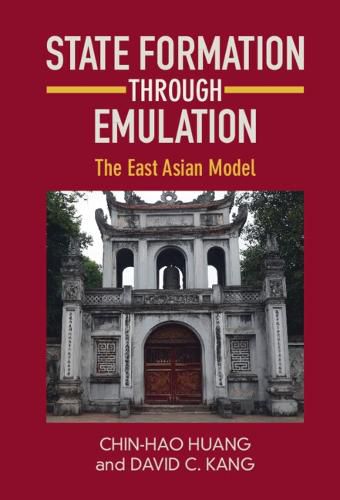Readings Newsletter
Become a Readings Member to make your shopping experience even easier.
Sign in or sign up for free!
You’re not far away from qualifying for FREE standard shipping within Australia
You’ve qualified for FREE standard shipping within Australia
The cart is loading…






Neither war nor preparations for war were the cause or effect of state formation in East Asia. Instead, emulation of China-the hegemon with a civilizational influence-drove the rapid formation of centralized, bureaucratically administered, territorial governments in Korea, Japan, and Vietnam. Furthermore, these countries engaged in state-building not to engage in conflict or to suppress revolt. In fact, war was relatively rare and there was no balance of power system with regular existential threats-the longevity of the East Asian dynasties is evidence of both the peacefulness of their neighborhood and their internal stability. We challenge the assumption that the European experience with war and state-making was universal. More importantly, we broaden the scope of state formation in East Asia beyond the study of China itself and show how countries in the region interacted and learned from each other and China to develop strong capacities and stable borders.
$9.00 standard shipping within Australia
FREE standard shipping within Australia for orders over $100.00
Express & International shipping calculated at checkout
Neither war nor preparations for war were the cause or effect of state formation in East Asia. Instead, emulation of China-the hegemon with a civilizational influence-drove the rapid formation of centralized, bureaucratically administered, territorial governments in Korea, Japan, and Vietnam. Furthermore, these countries engaged in state-building not to engage in conflict or to suppress revolt. In fact, war was relatively rare and there was no balance of power system with regular existential threats-the longevity of the East Asian dynasties is evidence of both the peacefulness of their neighborhood and their internal stability. We challenge the assumption that the European experience with war and state-making was universal. More importantly, we broaden the scope of state formation in East Asia beyond the study of China itself and show how countries in the region interacted and learned from each other and China to develop strong capacities and stable borders.